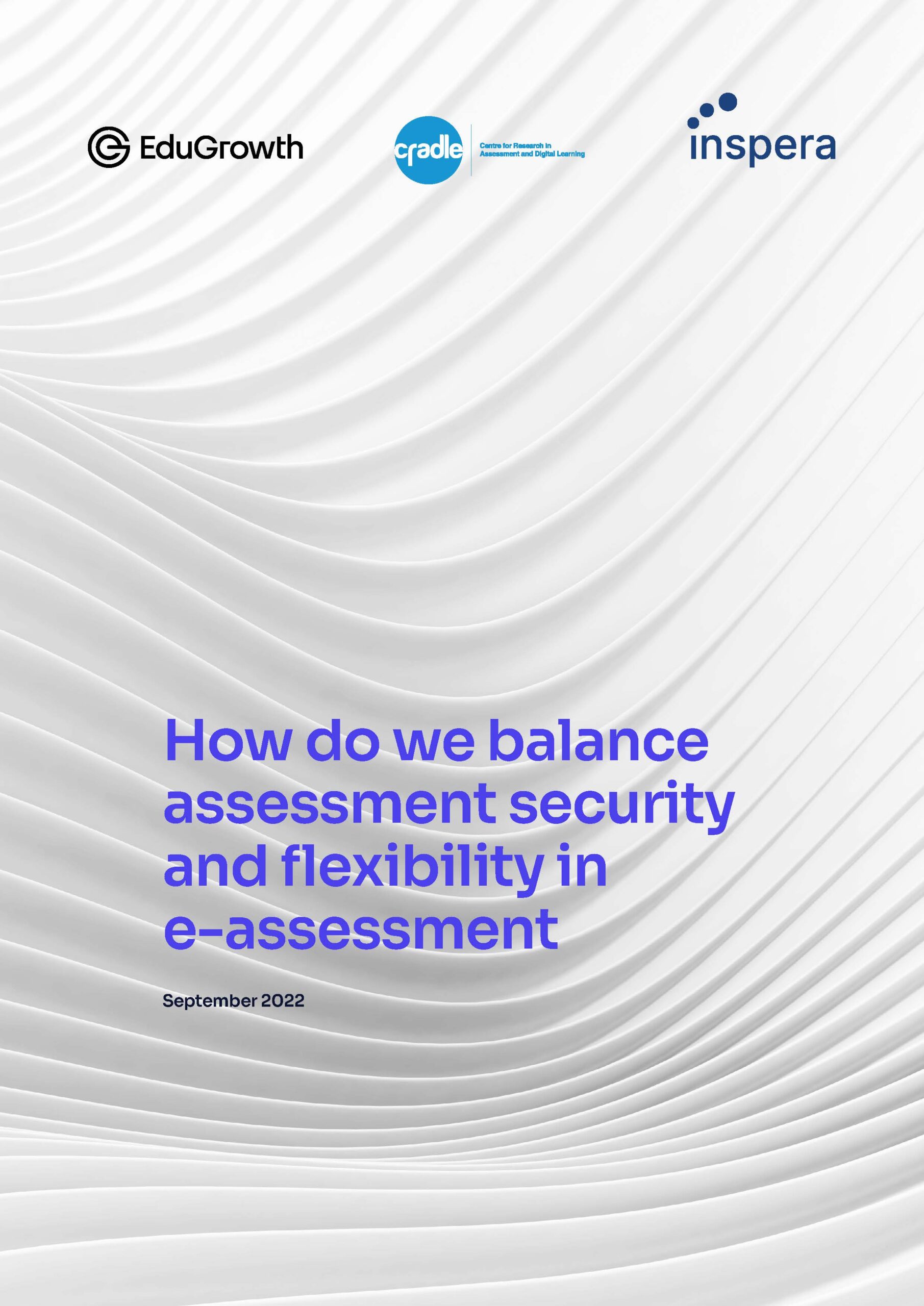Professor Phillip Dawson | CRADLE | Deakin University
September 2022
During the COVID-19 pandemic there has been a significant shift towards e-assessment, which has brought with it concerns about student cheating. In the early part of the pandemic, many educators were assessing in ‘survival mode’; doing the best they could
with the resources available. Assessment needed to move online, fast. But it appears that much of this shift has happened for good – so it’s time to tackle the big questions of e-assessment.
The tension between increasing flexibility and securing assessment against cheating has been one of the biggest challenges in this new reality. On the one hand, students need to complete assessed tasks at a location of their choosing, on their own devices, and potentially at a time that suits them – in other words, flexibly. But if we cannot physically observe students while they do these high-stakes tasks, are we inviting cheating?
During the early pandemic period, educators scrambled to deliver flexible assessment using the tools available to them, attempting to do a good enough job to assess students where they were, using approaches they thought would minimise cheating. At an education systems level, moderate success was achieved: students were assessed at locations of their choosing, but there was a very significant increase in cheating rates, as evidenced by, for example, the substantial increase in the use of multi-billion-dollar cheating
companies, and increases in self-reported cheating compared to
surveys conducted pre-COVID.
To explore this challenging terrain, Inspera engaged EduGrowth and Professor Phillip Dawson from the Centre for Research in Assessment and Digital Learning (CRADLE) at Deakin University to analyse the literature and consult with experts and leaders from across the sector. A workshop was held with 17 senior leaders and experts from Australian higher education and the educational technology sector. In that workshop, participants discussed how to balance assessment security and flexibility in e-assessment. This report builds on the research literature, participants’ expertise, and examples of good practice drawn from across the sector.

Register to download report
Note: this page will refresh on submit to reveal the download link

